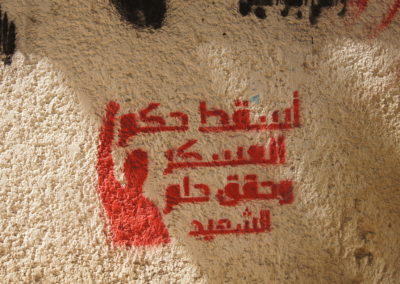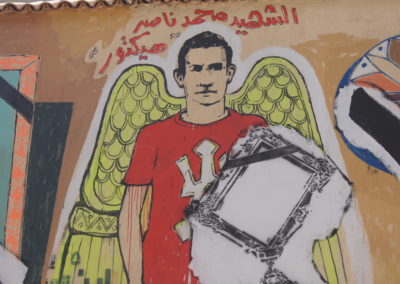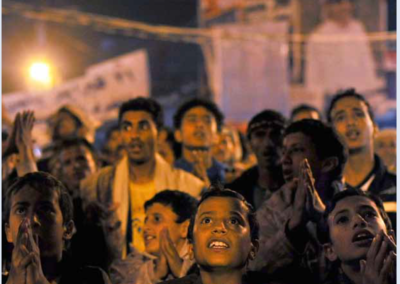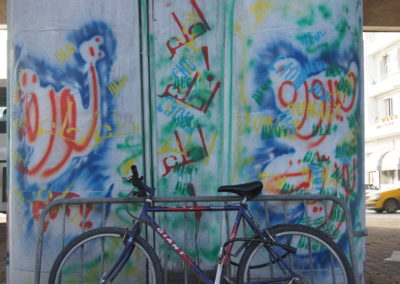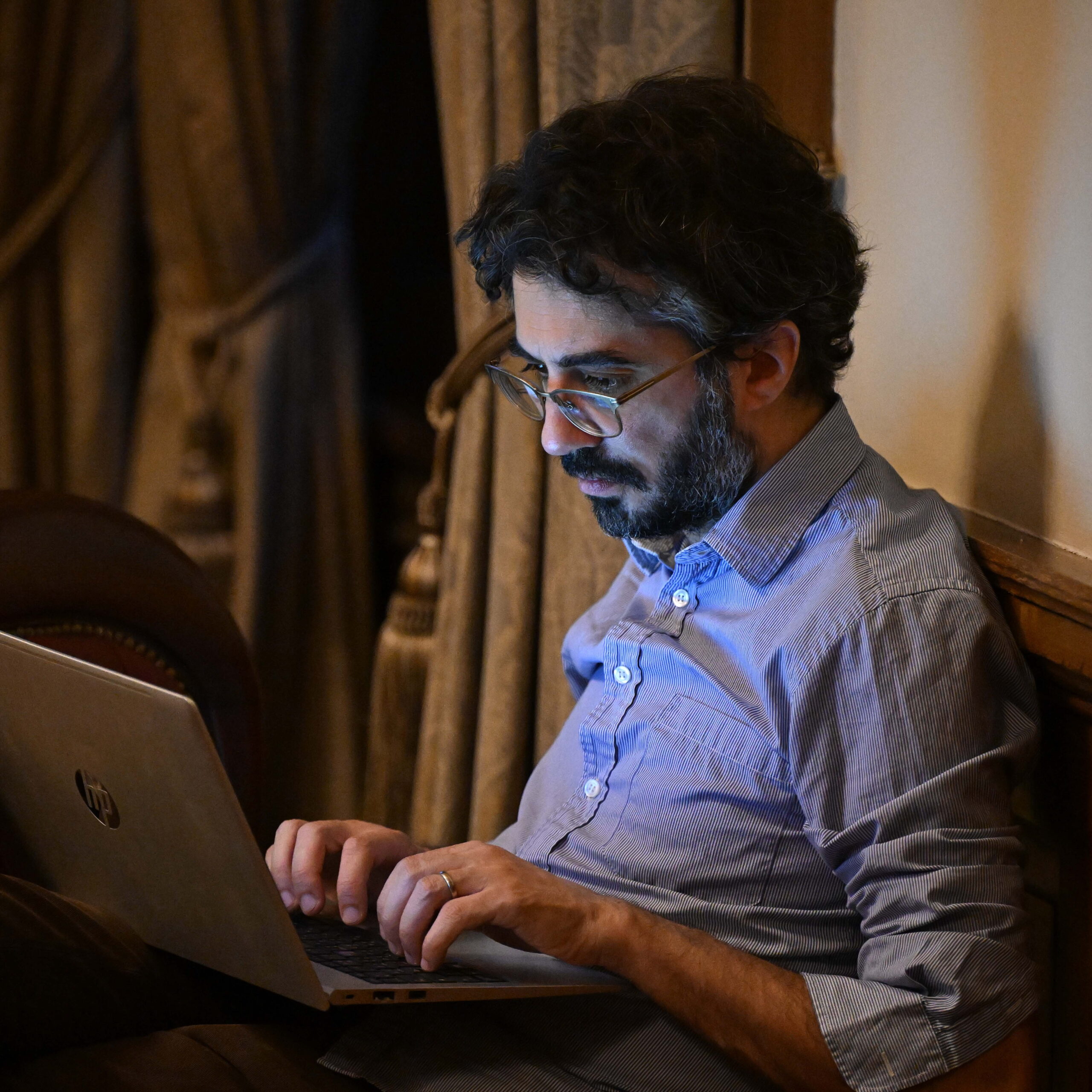
Welcome
Zaid Al-Ali is an independent scholar and practitioner. His work focuses on constitutional negotiations and peace processes in the Arab region. He has also represented clients in commercial arbitrations, mainly in energy disputes.
Zaid has worked on constitutional reform and peace negotiations for International IDEA and the United Nations in Tunisia, Libya, Egypt, Yemen, Sudan, Syria and Lebanon. Zaid has taught and been a fellow at Princeton University, the Berlin Institute of Advanced Studies, Sciences-PO (Paris), among others. His books have been published by Yale University Press and by Cambridge University Press, and he has published a large number of academic articles and op-eds. Zaid has law degrees from Harvard Law School, the Université de Paris I (Sorbonne-Panthéon), and King’s College London.
About
Zaid Al-Ali was born in Madrid in 1977, spent the first ten years of his life in New York and the second ten years in London. His family is from Baghdad, Iraq. At the start of the Iran-Iraq war in 1980, his father (who at the time was Iraq’s ambassador to the United Nations) resigned his position in protest, thereby effectively forcing his entire family into exile until 2003.
Zaid graduated with law degrees from King’s College London in 1997, from the Université de Paris I (Panthéon-Sorbonne) in 1999 and from Harvard Law School in 2001. He started his legal career at Shearman & Sterling LLP, where he practiced international commercial and investment arbitration in its Paris and London offices. In February 2005, he moved to the Middle East to work for the United Nations, where he focused on constitutional reform in Iraq for five years.
In January 2011, Zaid was in Baghdad when Tunisian dictator Zine El Abidine Ben Ali was deposed in a popular uprising. Since then, Zaid has been focusing on constitutional reform and peace negotiations throughout the Middle East and North Africa. He has worked for both International IDEA and for the United Nations and has been providing direct on the ground advice to negotiators, to international organisations, among many others.
Zaid’s first book, ‘The Struggle Iraq’s Future’ was published by Yale University Press in 2014. His second book, ‘Arab Constitutionalism: The Coming Revolution’ was published by Cambridge University Press in 2022. He is working on a third book on peace negotiations, but has no idea when it will be done.
Books
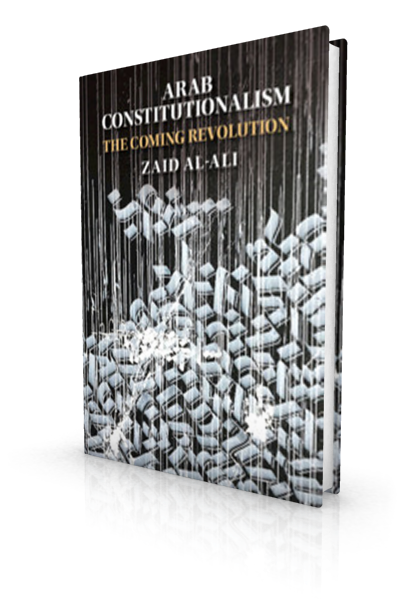
Watch the trailer for Arab Constitutionalism
Praise for Arab Constitutionalism
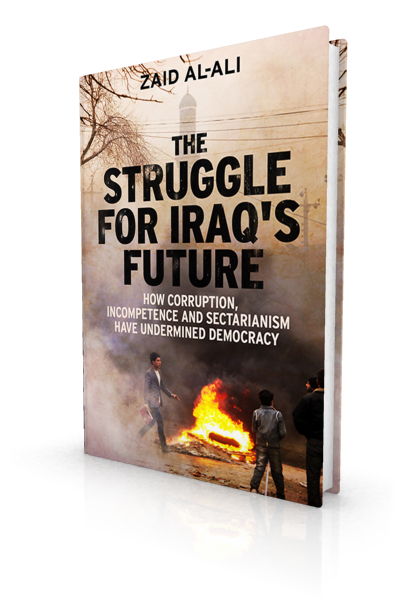
Other Writings
Zaid is a regular contributor to various publications, including academic publications and mainstream press outlets. He writes on issues constitutional developments in Arab-majority countries, and also on peace negotiations that have a governance developments. He has published articles, chapters and other pieces on Iraq, Egypt, Yemen, Libya, Tunisia, Sudan and others.
Academic writings
The Arab Region 15 Years after the Uprising: Regression, Conflict, and Residual Hope
Constitutional Studies, 2025
Iraq’s New Arbitration Law: A New Model of Investor Protection in the Twilight of Investment Treaties?
International Commercial and Investment Treaty Arbitration in the Middle East and Africa, 2025
Revenue Allocation Mechanisms in post conflict-countries
International IDEA, 2023
Commentary on Iraq v Turkey Final Award
1001 Iraqi Thoughts, 2023
The Juba Agreement for Peace in Sudan: Summary and Analysis
International IDEA, 2021
Libya’s draft constitution: A contextual analysis
Constitutionnet, 2020
Five years of Arab Constitutional Reform: Balancing process requirements with the demands of fragile democratic traditions
UCLA Center for Middle East Development, 2017
International Assistance to Arab Spring Transitions: Is there any order to the chaos?
Hurst Publishers, 2017
The Arab Spring constitutions. For whose benefit?
Assessing Constitutional Performance (Comparative Constitutional Law and Policy), 2016
A contextual analysis of Tunisia’s new constitution
Siyasat Arabiya Journal, 2016
The Arab Spring Constitutions: For whose benefit?
Cambridge University Press, 2016
Egyptian Constitutional Reform and the Fight against Corruption
International IDEA and NYU, 2013
The competing effect of national uniqueness and comparative influences on constitutional practice
Routledge Handbook of Constitutional Law, 2012
Constitutional Legitimacy in Iraq. What Role Local Context?
Constitutionalism in Islamic Countries: Between Upheaval and Continuity, 2012
Constitutional drafting and external influence
Comparative Constitutional Law, 2011
The Internationalised Pouvoir Constituant – Constitution-making under external influence in Iraq, Sudan and East Timor
Max Planck Yearbook of United Nations Law, No. 10, 2006
Op-eds and commentary
The Lessons of Osirak for Israel and Iran
Foreign Policy, 2025
Israel’s war may have weakened the hold of Iran-aligned groups on Iraqi politics
The National, 2025
The longstanding Baghdad-Kurdistan feud is about more than just energy
The National, 2025
The New Syria Is Run Like the Old
Foreign Policy, 2025
Discussing Syria’s Constitutional Declaration: Interview with Zaid Al-Ali
Arab Reform Initiative, 2025
How do you write a constitution in today’s conditions?
Bloomberg, 2025
Syria’s troubling new order
Foreign Policy, 2025
Syria needs an interim constitution quickly to ensure its institutions are not lost
The National, 2024
The state’s reduced role in post-2003 Iraq
The National, 2024
Libya’s democracy needs meaningful international support
Chatham House, 2022
Tunisia’s draft constitution solidifies one-man rule
The Washington Post, 2022
Algeria’s not-so-new (Draft) Constitution: Betraying Hirak’s radicalism?
Constitutionnet, 2020
Constitutional reform is important in Algeria and Sudan. Here’s why
The Washington Post, 2019
What is behind the plight of Iraqi women?
Al Jazeera, 2018
Will Sadr’s victory diminish Iran’s influence in Iraq?
Al Jazeera, 2018
What to expect from Iraq’s election?
Al Jazeera, 2018
The possible devastating outcome of a Kurdish referendum
openDemocracy, 2017
The Only Way to Solve Iraq’s Political Crisis
The New York Times, 2016
Premature excitement about Iraq’s new government reforms
The Washington Post, 2015
Tikrit: Iraq’s Abandoned City
New York Review of Books, 2015
Iraq’s rot starts at the top
The New York Times, 2014
How Maliki Ruined Iraq
Foreign Policy, 2014
Iraq’s House of Cards
Foreign Policy, 2014
Iraq’s next parliamentary elections: the stakes
openDemocracy, 2014
Tunisia’s new constitution: progress and challenges to come
openDemocracy, 2014
Egypt’s Missed Constitutional Moment
Foreign Policy, 2013
Egypt’s constitutional morass
Foreign Policy, 2013
Another Egyptian constitutional declaration
Foreign Policy, 2013
The Constitutional Court’s mark on Egypt’s elections
Foreign Policy, 2013
A Look at Life in Iraq, Beyond Baghdad
National Public Radio, 2010
Contact
If you want to get in touch to discuss the book, for a media request, to ask a question about constitutional or legal issues, or just to share views about constitutional and political developments in the region, please use this contact form. Zaid is also available at twitter @zalali.

